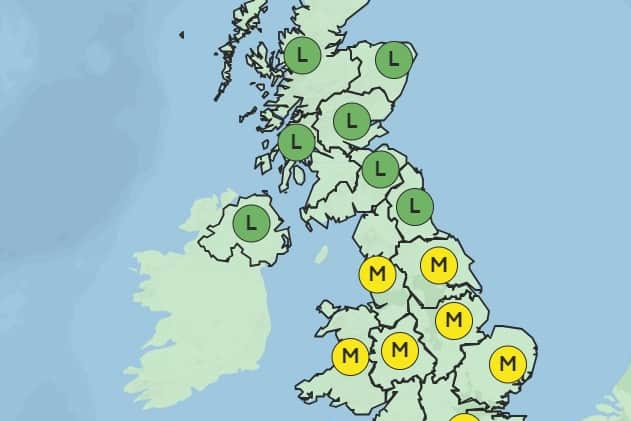Hay fever in Lancashire - the symptoms, causes, and what helps
and live on Freeview channel 276
The sun is trying to poke out, temperatures are rising, and for those unlucky people, the start of hayfever season is upon us.
What is hay fever?
Hay fever is a common allergy that causes sneezing, coughing and itchy eyes. Symptoms also include a loss of smell, pain around the sides of your head and your forehead, a headache and feeling tired. Hay fever can last for weeks or months, unlike a cold, which usually goes away after one to two weeks.
What kinds of pollen do we get in the North West?
Advertisement
Hide AdAdvertisement
Hide AdIn the North West, we are at highest risk of pollen from alder, birch and oak pollen.
Alder pollen is more prevelent from early January to mid-May, peaking in mid-February to the end of March. Birch pollen is from the start of April to early May, and oak pollen is from early April to mid May. We also have a risk of grass pollen and a lower risk of ash tree pollen from early March to early June.


What is the pollen level now?
The MET Office run a daily pollen count. They say that for the next five days, there is a moderately-high pollen count, mainly from birch and ash pollen in northern parts, with oak, ash and a little grass pollen in southern parts.
How do you treat hay fever?
There's currently no cure for hay fever and you cannot prevent it. But you can do things to ease your symptoms when the pollen count is high. These include:
Advertisement
Hide AdAdvertisement
Hide Ad- put petroleum jelly (such as Vaseline) around your nostrils to trap pollen
- wear wraparound sunglasses, a mask or a wide-brimmed hat to stop pollen getting into your nose and eyes
- shower and change your clothes after you have been outside to wash pollen off
- keep windows and doors shut as much as possible
- vacuum regularly and dust with a damp cloth
-try to use a pollen filter in the air vents of your car, if you have one, and a HEPA filter in your vaccum cleaner.
Comment Guidelines
National World encourages reader discussion on our stories. User feedback, insights and back-and-forth exchanges add a rich layer of context to reporting. Please review our Community Guidelines before commenting.